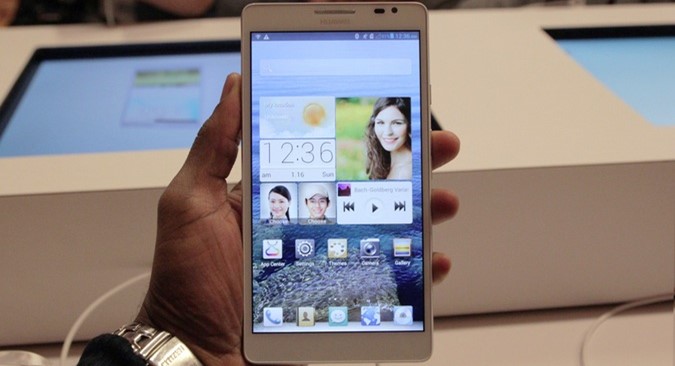
One of the few pieces of evidence that I am getting smarter (in contrast with the much more believable idea that I am unfortunately past my dotage) is that I am more reticent to participate in any kind of romantic matchmaking or technology predictions. In both cases, it’s a crapshoot with too many variables involved that don’t resolve themselves except with the use of a time machine or just plain getting old. So instead, I try to focus on facts. So while I once scoffed at the ‘Phablet’ phenomenon, it’s an indisputable fact that the Asians are going for them
in a big way. Now since IDC released this study, cue the laziest journalistic class in the world (tech journalist!) predicting a worldwide sweep of phablet fever.
Not so fast. This seems to be an Asian phenomenon for now, starting from the mature markets like SK and HK and moving to India and China. Japan is pointedly excluded and I’ve heard the Nipponese love small exquisite things, which my visit there sorta confirms. So those are the facts. But what else do we know about this phenomenon? And how can we predict what direction it will take?
The first is that Apple seems to not really believe in it or at least its urgency. It’s stuck to a 4 inch diagonal screen with the release of the 5S and 5C. A decision it will have to live with for about at least a year, given its recent refresh cycle. BTW, this does seem like an error given that Apple needs wins in Asia. The second is that there is huge interest in phablets from all vendors. Samsung pioneered the segment and a flock of OEMs have followed. Even Nokia is set to release the Lumia 1520 and was recently caught asking customers how they refer to largish smartphones seeing as it doesn’t trust the term ‘phablet’ (Good on you Nokia, it does seem to leave a bad taste in the mouth). Microsoft has had to modify its software for larger screens in response to the demand as well.
On the customer insights front, there are slim pickings:
-
Phablets tend to compete with smaller tablets – this is a no brainer, they’re about the same size, why own an iPad mini and a Samsung Note III? Common sense gets in the way. So Phablets have a slightly bigger addressable market that traditional smartphones (no guarantee since a segment will always find them too big).

- Phablets are generally connected to the internet while small tablets can be intermittent (the vast majority sold are wifi only). This means that all casual web browsing is uninterrupted and fairly capable. This is a step up from standard smartphones that compromise the full desktop web experience, responsive design notwithstanding.
- Fair in multitasking
- Pretty decent second screen
- Better child minders than normal smartphones
- Phablets don’t really support one handed use unless you’re Paul Bunyan. You generally need both mitts. The nub of it is that your thumb cannot go all the way from your grip on one side to the top of the opposite end of the screen. This means that in car use is limited (which is a good thing), among other things.
- Pure guess but there is probably some higher correlation between use of headphones or wireless headphones and phablets. Just lifting that thing to your head has got to be tiring. More broadly, any technology that moves away from the pure physicality of phones will likely benefit the phablet (e.g. Bluetooth, wired headphones and standards, using phones as the embodiment of the next unit of computing, better in car integration technologies etc.)
- Phablets are straining the limits of pocketability. This seems to be more of a problem for men – they rarely carry bags to aid with the portage of personal accessories. Either this will be a natural limit or fashion will change in response. Place your bets right here!
What does all this add up to? That aversion to BIG is not enough to slow down the march of phablets. It’s more complicated than that. That there are compelling reasons why consumers would want one, not least of which is an economic reason (consolidation). That the obstacles to adoption are surmountable.
I’m personally not a fan at this point but I can see why other rational actors would beg to differ.

2 Responses
Not a fan as well but if I ever decide to buy one, it would be based mainly on two reasons – consolidation and prudency.
I have the Galaxy Note. I will not go back to a small screen again.